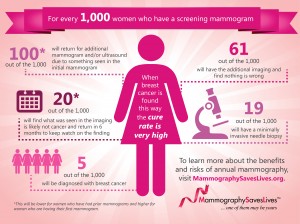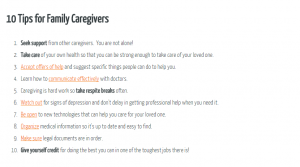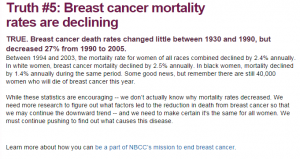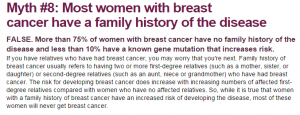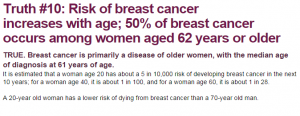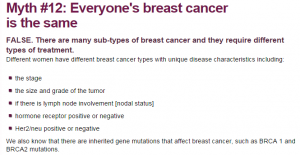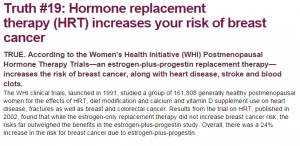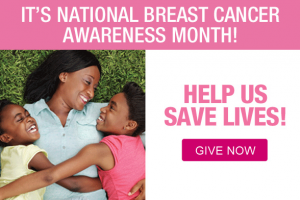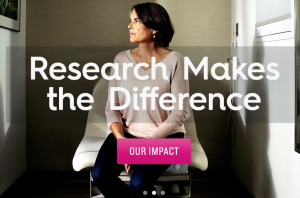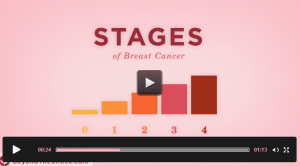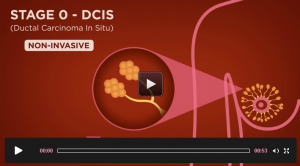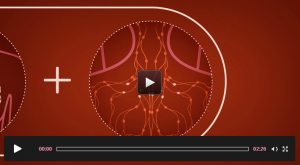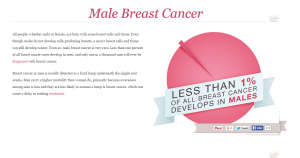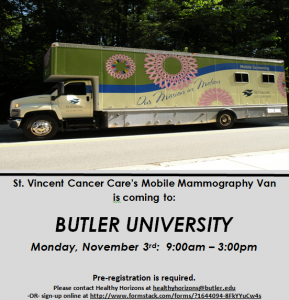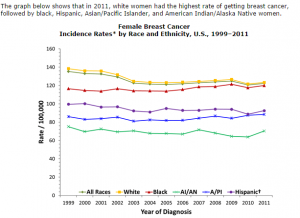Treatment of breast cancer generally depends on the stage of the cancer. More advanced cancers (Stage III and IV) often require more intense treatment (surgery, radiation, and chemotherapy). Several common types of breast cancer treatment are explained below.
Surgery: Usually the first line of attack against breast cancer. Surgery is often required to remove the breast cancer tumor. There are different surgery options that include a lumpectomy (removal of breast cancer tumor) and mastectomy (removal of the breast tissue). The ideal surgical treatment is often dependent on the cancer’s size and staging.
Radiation Therapy: treatment with high-energy rays or particles that destroy cancer cells. Radiation to the breast is often done after lumpectomy or after some mastectomies to help lower the chance that the cancer will return.
Chemotherapy: Treatment with cancer-killing drugs that may be given intravenously (injected into a vein) or by mouth. The drugs travel through the bloodstream to reach cancer cells in most parts of the body. Chemo is given in cycles, with each period of treatment followed by a recovery period. Treatment usually lasts for several months. There are many different chemotherapy drugs and new drugs are being studied in clinical trials every day.Chemotherapy is often used before or after surgery, and in more advanced breast cancers. Unfortunately, chemotherapy has many undesirable effects such as hair loss, mouth sores, and nausea and vomiting.
Hormone Therapy: Another form of systemic (oral tablet) therapy that can be used before or after surgery. It is usually done to prevent cancers removed during surgery from coming back. Most types of hormone therapy for breast cancer either lower estrogen levels or stop estrogen from acting on breast cancer cells. This kind of treatment is helpful for hormone receptor-positive breast cancers, but it does not help patients whose tumors are hormone receptor negative.
For more information, visit the American Cancer Society, the National Cancer Institute, or discuss with your physician. The link below, from Susan G Komen, includes an an interactive treatment tutorial for newly diagnosed patients.


